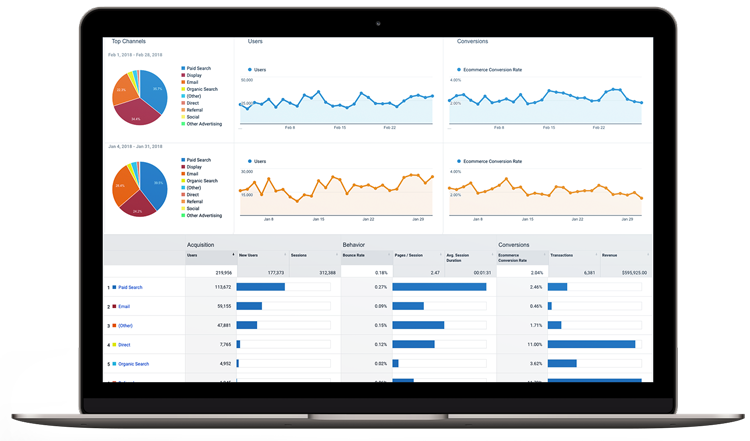Paid Search
Reach potential customers who are actively searching for your products or services with ads that appear at the top of search engine results pages.
Learn More
Display Advertising
Create brand awareness & drive new opportunities no matter where your customers are on the internet.
Learn More
Social Media Advertising
We use social media advertising campaigns to convert new customers from Facebook, Instagram, LinkedIn, and more.
Learn More
eCommerce
Make sure potential customers see your products at the top of the list with Google Shopping & Product Listing Ads (PLAs).
Learn More
Video Advertising
Optimized YouTube & video advertising puts you in front of clients no matter what they’re watching online.
Learn More
Remarketing Ads
You know your clients are browsing your services - now we just need them to convert. Gain visibility to snag those customers.
Learn More
Digital Advertising from Data-Driven Decisions
Finding the right partner to help you optimize your pay-per-click (PPC) program is vital for obtaining successful business results. Rocket Clicks works with partners to create the best internet marketing plan for their unique businesses.
Seeing improvement in your PPC results requires proven expertise. As a Google Premier Partner, we know the strategies that will get customers into your inbox. Combined with a top tier website optimization strategy, our team of online advertising professionals get results.
By advancing strategy, increasing clarity and accountability, and setting priorities based on expected impact, Rocket Clicks has helped businesses across a wide variety of industries connect with new customers.


















